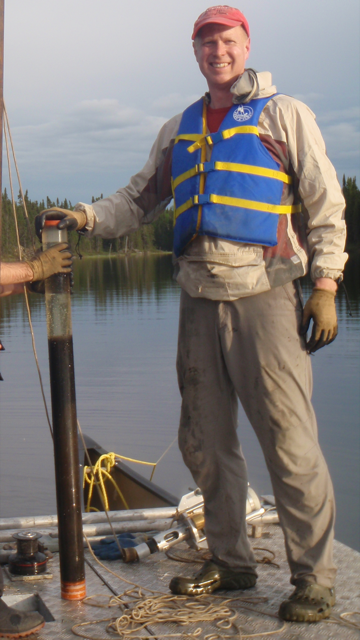Frank H. Rigler Award Lecture
 |
|
Brian CummingIs this year’s recipient of the Frank Rigler Award, the highest honour given by the Society of Canadian Limnologists. Brian is a professor in the Department of Biology at Queen’s University (Ontario, Canada) where he is a co-director of the Paleoecological Environmental Assessment and Research Laboratory (PEARL), and the Head of the Department of Biology. Brian received his BScH and PhD from Queen’s in 1987 and 1991, respectively. He was a visiting scientist at the University of Bergen (Norway) and an NSERC Post-Doctoral Fellow at the Limnological Research Center (Dept. of Geology) at the University of Minnesota, prior to starting his tenure as a faculty member at Queen’s in 1994. He has authored well over 130 peer-reviewed scientific papers, notes and book chapters on a wide variety of topics with a focus on the development and application of limnological and paleoecological approaches to assess environmental change. He will present the Frank Rigler Memorial Award Lecture: The importance of Scale in Understanding Lake Response to Anthropogenic and Natural Forcings Abstract: A long-term perspective is essential to understand how aquatic ecosytems change over time from either anthropogenic or natural forcings. However, very few lakes have monitoring records that predate the onset of major anthropogenic forcings, and even fewer have monitoring records that extend over periods of large changes in climate. In this presentation, I will outline how sediment records, spanning decades to centuries, have contributed our understanding of the how algal and invertebrate communities have responded to anthropogenic forcings, such as eutrophication and acidification. Similarly, I will address the importance of scale in understanding lake response over periods of past changes in climate over millennia, and how these records provide insights into issues related to both water quantity and quality. |
